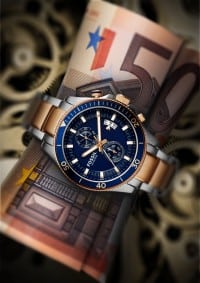Fashion accessory retailer Fossil began as a wholesale business in the 1980s but has since become a strong retail presence in its own right. The company now has more than 600 retail locations globally and offers a number of designer brands in its portfolio, including Michael Kors, Burberry, and more. One of Fossil’s latest challenges has been to develop and deploy a solid omni-channel experience for its customers.
In 2012, Fossil acquired wearable tech company Misfit, with the intent to design that company’s technology into some of its more traditional-looking watches and accessories.
“In 10 years’ time, we might be seen as more of a technology company than a fashion or accessory brand. That will mean many changes in the way the global risk is evaluated and loss prevention strategies are managed as much of our focus could be on the integrity of the supply chain and inventory availability,” said David Lawwill, global director of loss prevention for the Fossil Group in a May-June 2016 LP Magazine feature article.
An evolution into a more tech-focused sphere may mean that the brand’s customer base may grow to include a highly tech-savvy demographic—one that will have greater expectations when it comes to omni-channel fulfillment, online shopping, and so on. “However, from an LP perspective, conceptually, omni-channel will produce fewer B- and C-level stores and focus more on flagship locations whilst making a priority of logistics because that is where the challenges will be,” said Lawwill.
Beyond the omni-channel retail strategy, Fossil also faces global expansion challenges as it ventures into new territories, including Europe and South Africa.
Check out “Watch and Learn” to read the full article. You can also visit the Table of Contents for the May-June 2016 issue or register for a free subscription to the magazine.


